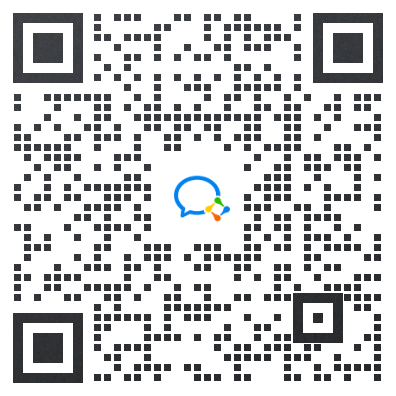(5)either和neither的用法:
either意思是“两个中间的任何一个”;neither是either的否定形式,意思是“两个都不”。
neither和either在句子中可作主语、宾语和定语等,都用作单数。如:I don’t care much for what to drink. Either of the two will do. (我不介意喝些什么,两个之中随便哪个都行) / --Will you go there by bus or by car? –Neither. I will go there by train.(你坐公车去还是坐轿车去?一个都不坐,我坐火车去。)
(6)other、the other和another的用法:
other意思是“另一”、“另一些”,有复数形式。在句子中可作主语、宾语和定语。another意思是“另外”、“又一个”,表示增加,在句中可作宾语和定语。如:
Some girls are singing under the big apple tree and others are sitting on the grass talking.(有些女孩在大苹果树下唱歌,别的就躺在草地上说话) / You have had several cakes. Do you really want another one?(你已经吃了好几块饼子了,你真的还要一块?) / I want another four books.(我还要四本书)
another(另外的,再一,又一)与the other(另外的一个) 主要从数量上区分,只有两个时用the other,在原先基础上增加用another。如: This is one of your socks. Where is the other one?(这是你的一只袜子,还有一只呢?) / I have eaten 4 cakes, but I still want another.(我已经吃了4块蛋糕,但是我还要以块。)
others与the others的主要区别:others指“剩余的人/物”(指大部分);the others指“其余的人/物”,(指全部)。如:A few students are playing soccer while others are watching them.(有几个学生在踢足球,其他一些人在观看) / Two of the ten boys are standing and the others are sitting round them.(十个男孩中有两个站着,其他人都围着他们坐着。)
(7)many和much的用法:
many意思是“很多”,与可数名词复数连用;much意思是“很多”,与不可数名词连用。它们在句中可作主语、宾语和定语等。如:I don’t have many friends here.(在这里我没有很多的朋友。) /Many died in the bus accident.(许多人在公交车祸中丧失) / We can learn much with the help of him.(在他的帮助之下我们能学到很多)
many和much一般用于否定句,肯定句中通常用a lot of 或者lots of; many / much用于肯定句时可以在前面加上so、very或too.如: There are a lot of people on the playground.(操场上有许多的人)/ They haven’t got much work to do.(他们没有多少事情可做) / There are too many people in the room.(房间里人太多了。)
(8)few、little、a few、a little的用法:
few、little意思是“很少几个”、“几乎没有”,有否定的意思,a few、a little意思是“有几个”、“有些”,有肯定的意思 ;few、a few与可数名词连用或代替可数的事物, little、a little与不可数名词连用或代替不可数的事物。它们在句中可作主语、宾语和定语。如:
He is very poor and he has little money.(他很穷,几乎没有什么钱。) / Don’t worry. There is still a little time left.(别着急,还有一点儿时间呢。) / In that polar region there live few people.(在那个极地地区几乎不住人) / You can get a few sweets from him.(你可以从他那儿弄到一些糖果)
7、疑问代词:用来提出问题的代词称为疑问代词。
1、who、whom、whose、what、which、whoever、whatever、whichever主要用于特殊疑问句中,一般放在句首。口语中也常用who代替whom作宾语,但在介词后则只能用whom。如:
Who(m) did you invite to your birthday party?(你都邀请了谁参加你的生日聚会的?) / What does she want to be when she grows up?(她长大了想干什么?)
2、who 和whom只能独立使用,其中who可以作句子的主语、表语或动词的宾语,whom只能作谓语动词的宾语;而what、which、whose等既可以独立使用作主语、表语和宾语,也可以与名词构成疑问短语。如: Who is that man?(那男的是谁?) / What colour are their hats?(他们的帽子是什么颜色?) / Which car was made in Germany?(哪辆车是德国造的?)(被动句)
注意这个提问:The man in the car is my father.(车里的男人是我父亲)
→Which man is your father?(哪个男人是你的父亲?)
3、which除了可以询问指代的情况之外,还可以针对说明人物的时间、地点、岁数、颜色、大小、状况等进行提问。如:People there live a very sad life.(那里的人生活凄惨) →Which people live a sad life? (哪些人生活凄惨?)/ --Which hotel have you booked for your holiday?(为了度假你预订了哪家旅馆?)—The biggest one in Haikou.(海口最大的那家旅馆)
4、疑问代词不分单复数,视它所替代的人或事物决定单复数,但是通常用单数;如果修饰名词,则以名词的单复数为准。如:Who is (are) in that playhouse?(谁在游戏房里?) / What is that? (那是什么?)/ What are those? (那些是什么?) / What colours do they have?(它们有哪些颜色?)
本文关键字: 初一英语

 资料下载
资料下载
英语学霸笔记
发布时间:2022-02-22微信扫码关注
免费领取学习资料
英语单词三字经
发布时间:2022-02-22微信扫码关注
免费领取学习资料
新概念1-2册知识图谱PDF版
发布时间:2022-02-22微信扫码关注
免费领取学习资料
新概念单词默写本电子版
发布时间:2022-02-22微信扫码关注
免费领取学习资料
新概念1册听力MP3音频合计
发布时间:2022-02-22微信扫码关注
免费领取学习资料
新概念1册知识点+课文详解
发布时间:2022-02-22微信扫码关注
免费领取学习资料

微信扫码关注
获取英语+新概念学习资料礼包

 推荐阅读
推荐阅读
新东方在线小编为大家整理了中考英语学习常用的资料,以便大家可以更好的来利用这些资料,提升我们的英语水平。如下图扫码领取↓↓↓
来源 : 网络 关键字 : 中考学习资料
频度副词与not连用时,表示部分否定; 对频度副词进行提问时,要用how often。如: 1 We go to the cinema sometimes (对划线
1 sometimes常可用于句末。 如: We all get into trouble sometimes 我们有时都会遇到麻烦。 You can’t work all th
1 sometimes常可用于句首。如: Sometimes she comes late 有时她来得晚。 Sometimes she didn’t agree with me
always,usually,often,sometimes, seldom和never都是用来表示时间的频度副词,但它们所表示的动作频率不同。 通常说来,always
副词主要用来修饰动词,形容词,其他副词或句子。 如now,today,yesterday,soon等,在句子中担任时间状语,是决定动词时态的主要
1) 方式副词:如slowly, quickly, fast, luckily, easily等,在句子中担任方式状语。这类副词大都由形容词+ly构成。 例如:Ple
总的来说,很多副词的位置比较灵活,在句子开头、中间、结尾都可以。但是请注意下面几点: 1)频度副词作状语时放在be动词、助动词、
绝大多数形容词和副词有三个等级:原级(原形)、比较级和最高级,他们的构成规则大致相同。列表如下: 表一:规则变化
1)两者之间进行比较用比较级。其常见句子结构为:A +谓语动词+比较级+than+B。 例如:This tree is taller than that one 这


